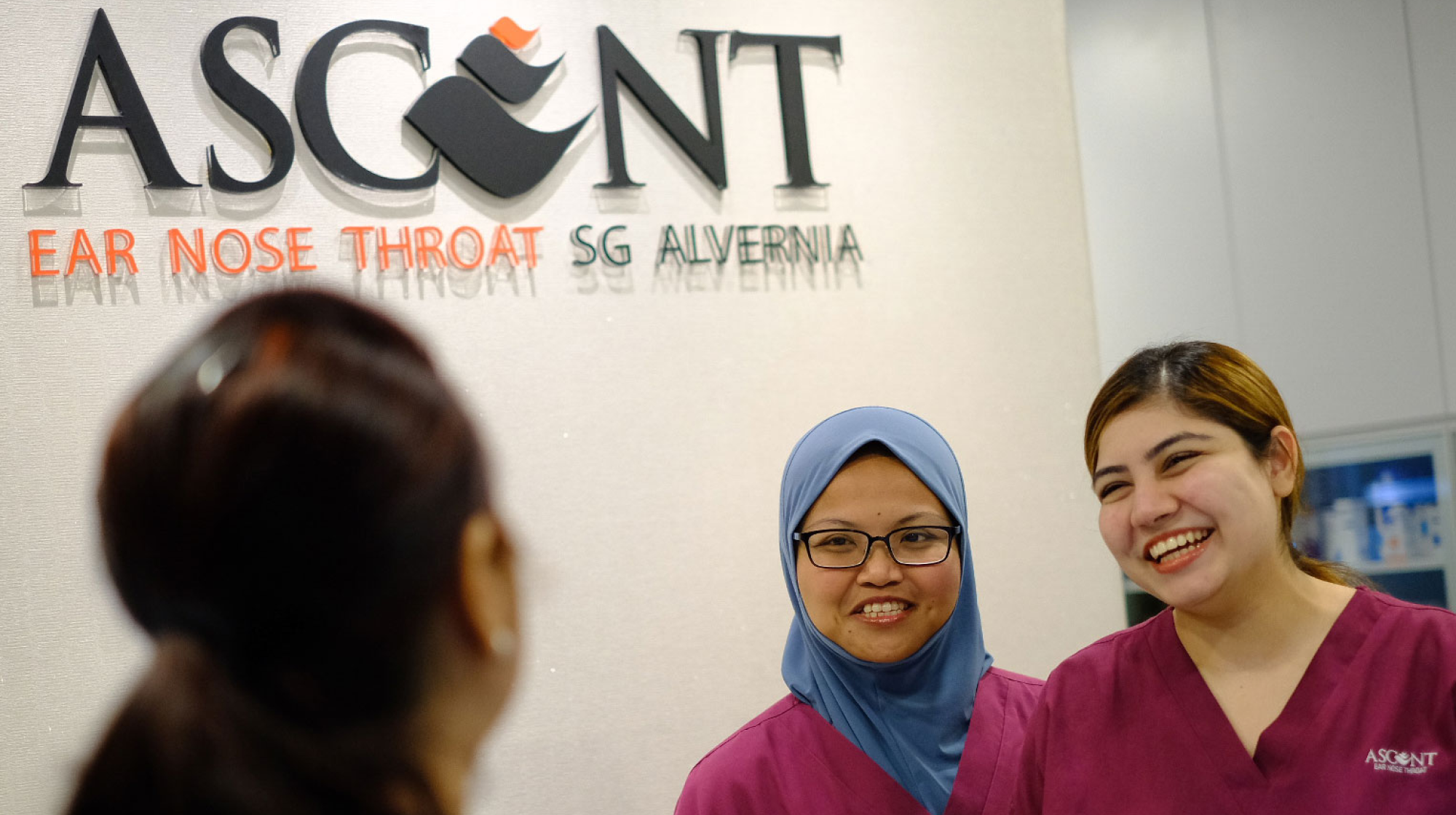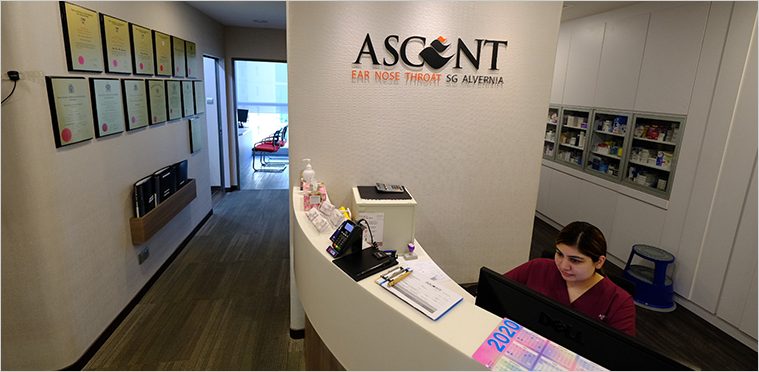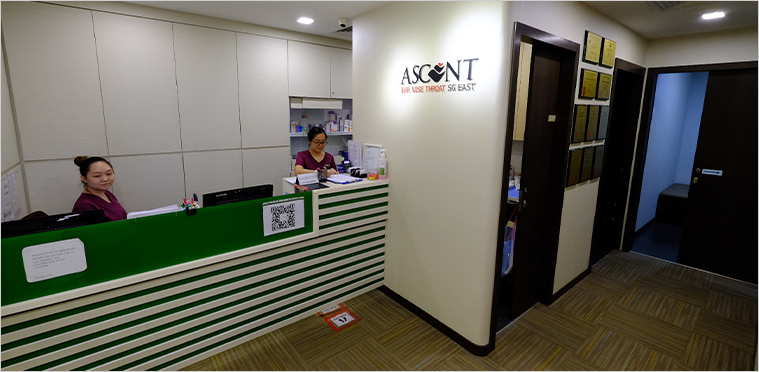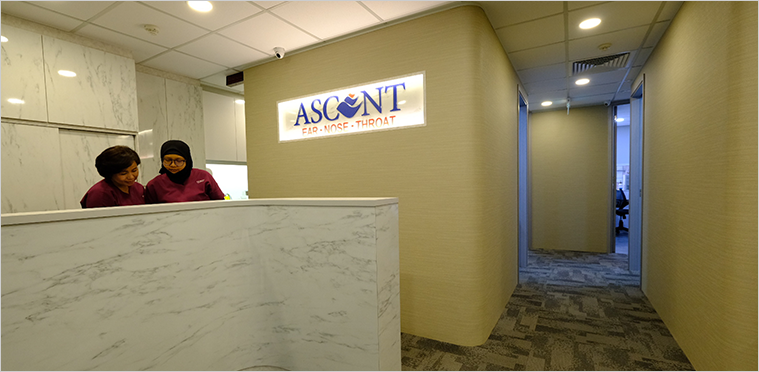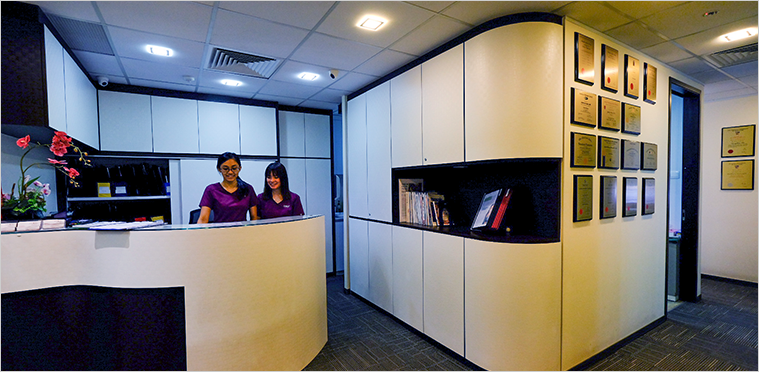Ascent Ear Nose & Throat
Tinnitus Specialist In Singapore
Tinnitus is a medical term for ringing or buzzing noises in the ear. It is vital to understand your symptoms and seek medical treatment as soon as possible, as early diagnosis and management can reduce the complications of tinnitus.


Common Symptoms of Tinnitus
Tinnitus may be present all the time, or it may be sporadic (occurring at irregular intervals). The sounds may vary in pitch, ranging from a low roar to a high screech, and you may hear them in one or both ears.
-
Ringing or buzzing in the ears
-
Hissing or whistling sounds
-
Reduced hearing
What Is Tinnitus?
Tinnitus is a medical term for ringing or buzzing noises in the ear. The noise heard is typically not caused by an external sound and is a common problem in older adults.
Tinnitus is generally caused by underlying conditions such as age-related hearing loss, ear or head injuries and problems with the circulatory system. While tinnitus can be frustrating and distressing, treatment options are known to be ineffective in relieving symptoms.
Complications of Tinnitus
In some cases, the sounds can be so loud that they interfere with your ability to concentrate or hear external sounds and significantly affect your daily functioning.
-
Insomnia or difficulty sleeping
-
Trouble concentrating
-
Fatigue
-
Stress
-
Memory problems
-
Anxiety and depression

Common Causes of Tinnitus
-
Age-related hearing loss
-
Ear infection
-
Ear canal blockage
-
Head or neck injuries
-
Trauma to the eardrums
-
Abnormal blood vessels
-
Certain medications such as antidepressants or antimalarial drugs
-
Meniere's disease (an inner ear disorder caused by abnormal inner ear fluid pressure)
-
Otosclerosis (an inherited condition where there is an abnormal bone growth in the middle ear)
For Singaporeans & Singapore Permanent Residents
Insurance & Medisave Partners
Certain ENT procedures are claimable under Medisave, and the exact amount would depend on the procedure. For more information, please speak to our friendly clinic staff about using your insurance plan, Integrated Shield Plan, or Medisave.
Diagnosis of Tinnitus
Physical examination
Your doctor will examine your ears, head and neck to search for any visible signs of injuries. They may also ask you to move some of your body parts, such as your eyes, jaw, and neck. Any changes in symptoms can help identify underlying conditions that may require treatment.
Hearing test
During the test, you will be wearing headphones that transmit specific sounds into one ear at a time. You will then respond and indicate the sounds that you can hear by raising your hands. Afterwards, the results will be analysed to rule out or identify other possible causes of tinnitus.
Imaging tests
Imaging tests such as CT or MRI scans can detect any deformities or damage to your ears.
Upon receiving a diagnosis, we will guide you through the several treatment options we offer and propose a treatment plan specific to your condition.
Treatment Options for Tinnitus
While tinnitus cannot be fully cured, its symptoms and complications can be managed. Treatment for tinnitus depends on whether an underlying health condition is causing your symptoms.
Some of the treatment options may include:

Treating underlying medical conditions
For cases where tinnitus is caused by other underlying conditions, treatment may include:
- Earwax removal
- Treating blood vessel conditions
- Hearing aids
- Changing your medication
Medication
Drug therapy can help reduce the severity of symptoms and complications. Medications may also be prescribed to treat underlying health conditions such as high blood pressure or depression. Common medications include tricyclic antidepressants and anti-anxiety drugs, including Xanax and amitriptyline.
Noise suppression and sound therapy
Certain electronic devices such as white noise machines and masking devices produce a continuous, low-level white noise that suppresses tinnitus symptoms. Furthermore, listening to these neutral sounds can also help to distract you from the ringing or buzzing noises.
Counselling and therapy
Behavioural treatment options aim to help you live with tinnitus by changing how you think and feel about your symptoms. Counselling also helps you learn coping techniques to make tinnitus symptoms less noticeable and less distressing.
Counselling options include:
- Cognitive behavioural therapy (CBT)
- Tinnitus retraining therapy (TRT)
visit us today
Photo Gallery


Our Main Clinic
Feel free to drop by our clinic and meet our specialist
-
Mount Elizabeth Medical Centre 3 Mount Elizabeth #09-03, Singapore 228510
Other Practice Locations
Mount Elizabeth Medical Centre
-
3 Mount Elizabeth #09-05 Singapore 228510
Parkway East Medical Centre
-
319 Joo Chiat Place #03-02 Singapore 427989
Mount Alvernia Medical Centre D
-
820 Thomson Road #08-63 Singapore 574623
Gleneagles Medical Centre
-
6 Napier Road #03-12 Singapore 258499
Frequently Asked Questions
Is tinnitus serious? When should I visit a doctor?
While tinnitus is typically not life-threatening and will gradually improve over time, it can significantly impact everyday life in some cases, affecting concentration and causing problems such as insomnia or depression.
In rare cases, tinnitus may also signal a more severe underlying medical condition that requires immediate treatment.
You should seek immediate medical attention if your symptoms persist for an extended period of time or if they impede your daily functions to a great extent.
What increases the risks of tinnitus?
- Age
- Regular and prolonged exposure to very loud sounds
- Frequent tobacco and alcohol use
- Certain health conditions such as obesity, cardiovascular problems or high blood pressure
How to prevent tinnitus?
- Limit exposure to loud sounds and wear hearing protection if necessary
- Schedule regular hearing tests to promptly detect any ear structural problems
- Exercise regularly
- Consume a healthy diet
- Avoid smoking
- Limit alcohol consumption

